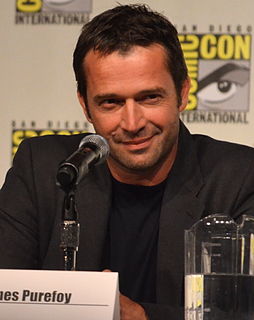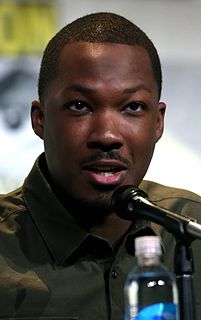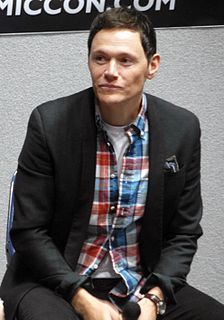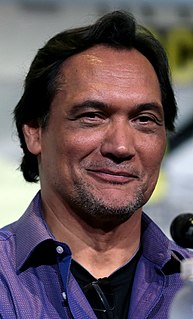A Quote by Steve Carell
When you approach it, and I hate sounding like the pretentious actor, but yeah, I think you have to find things within the character that are likeable, or at least human, and not to go at it with any sort of predetermined notions as to what that character is.
Related Quotes
The philosophical underpinnings of my approach to acting are that there are universal human qualities, and that every character is actually available within each one of us, that if we tap down into that universal humanness, we can find whatever character it is that we need to play already there within ourselves, and it's just a matter of peeling apart the onion that is you and finding that character within you, because of this universal human quality.
I think you should identify with your character, but plenty of people like themselves and hate themselves. You just have to find out what's truthful for the person you're playing. When people talk about that, I think what they're saying is that as an actor, as Peter, you don't want to make a judgment that comes from your worldview about the character. Your judgments should be coming from the place of the character, and within that space, sure, you could love or hate yourself or whatever you think is most appropriate.
There should always be that leeway because if you think of your character as sort of absolutely fixed, then you just try and find actors to come and do exactly that thing, then you're not gonna be working with that actor's own set of internal impulses and who they are, so the best work is always a coming together of the actor and the character.
[And on going from character to leading actor] I don't approach anything differently; I just approach it as a character. I'm always astounded at the fact that I've ever played a leading character in anything [Laughs]. And my wife concurs with that, frankly. She always thought I would be, at best, the wacky neighbor on a sitcom, so this is all just a surprise and a joy.
When you go for something because you're curious about it, you get psyched up about the chance of getting into it. It's like an actor meets a role, and you slip into that body and see what happens, to experience certain conditions, to adopt a certain character. Even shooting is a study of the character. I think both the character and the actor, and eventually the filmmaker - myself - are finding a way to accept their environment and being accepted and feel comfortable of themselves.
We just, you know, we're just sort of doing it like Bewitched, because we just think that the character of Kenny is so specific and so outrageous and so fun. And by far the hardest character to cast out of everybody to find someone who was capable of, you know, doing, you know, the comedy and just with the broadness and to be also just a really brilliant actor, you know, to do naturalism.



































